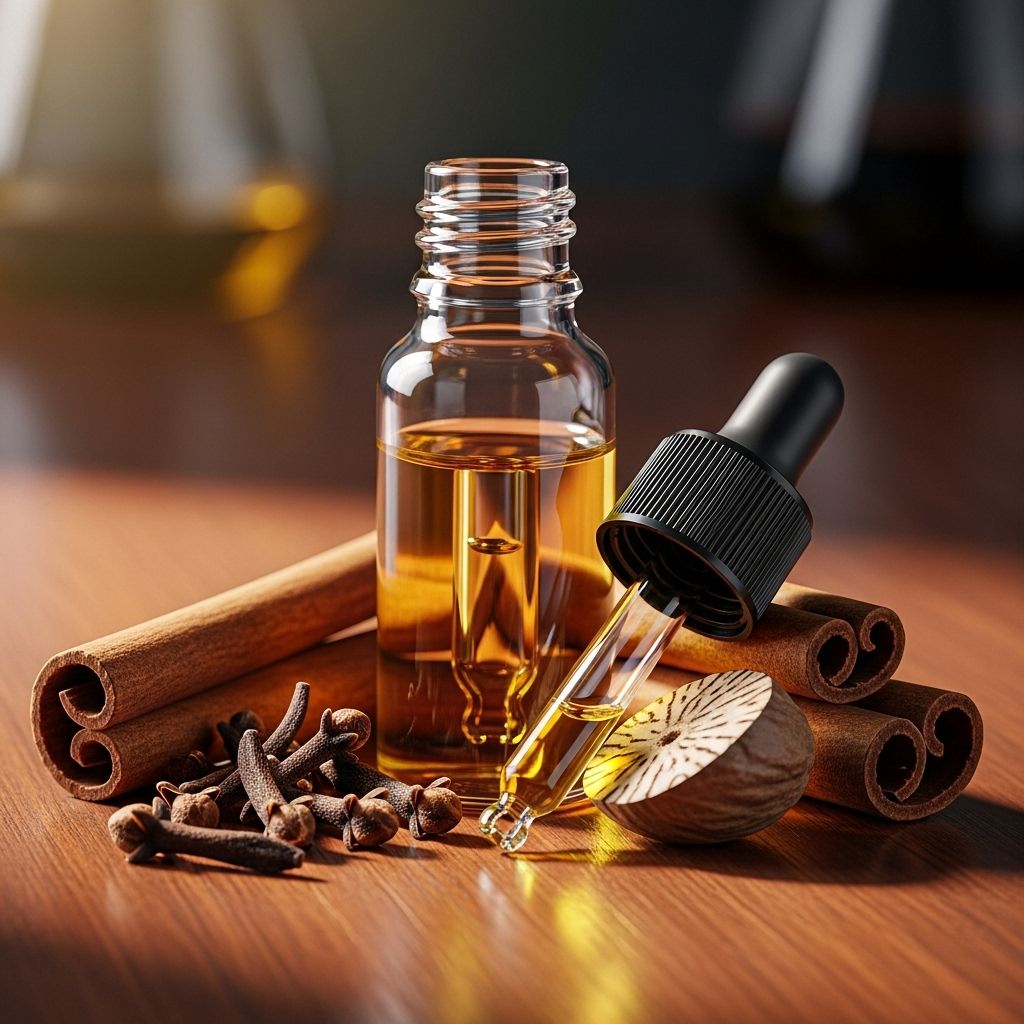Exploring Eugenol: Benefits, Uses, and Taste
Unveiling the Power of Eugenol: A Deep Dive into Its Applications and Properties

Introduction to Eugenol
Eugenol is a naturally occurring compound, primarily found in clove oil, that has been recognized for its strong, spicy aroma and numerous health benefits. It is a weakly acidic phenolic compound with the chemical formula C10H12O2, also known as 4-allyl-2-methoxyphenol. Eugenol is a key component of various essential oils, including those extracted from cloves, nutmeg, and cinnamon, and plays a significant role in both medicinal and culinary applications.
Chemical Properties of Eugenol
Eugenol is characterized by its pale yellow to colorless oily liquid appearance and a distinctive clove-like odor. It is soluble in organic solvents such as ethanol, ether, and chloroform, although its solubility in water is limited. Eugenol’s molecular weight is approximately 164.21 g/mol, with a boiling point of about 254°C and a melting point of -9.2°C. It tends to darken and thicken upon exposure to air, necessitating storage in a cool, light-protected environment.
Uses of Eugenol
Eugenol’s versatility extends across several industries, including medicine, dentistry, and food production.
- Medicine and Dentistry: Eugenol is renowned for its antiseptic, anti-inflammatory, and antimicrobial properties, making it a valuable ingredient in dental care products, such as root canal fillings and temporary fillings. It is also used in traditional medicine for pain relief and as an antispasmodic.
- Food and Beverages: As a flavoring agent, eugenol is used in various food products, including spicy and minty flavors, and in beverages like tea and coffee.
- Essential Oils and Perfumery: Eugenol serves as a key component in the production of fragrances and perfumes due to its strong aromatic properties.
Benefits of Eugenol
Eugenol offers several health benefits, including:
- Antibacterial and Antifungal Properties: Eugenol’s antimicrobial activity makes it effective against a range of bacteria and fungi, thereby aiding in wound healing and infection prevention.
- Pain Relief: The analgesic properties of eugenol contribute to its use in dental care for reducing pain and inflammation.
- Antioxidant Activity: Eugenol acts as an antioxidant, which can help protect against oxidative stress and cell damage.
Taste and Aroma of Eugenol
Eugenol is known for its strong, pungent taste and aroma, often described as spicy and clove-like. This distinctive flavor profile makes it a popular ingredient in various culinary dishes and beverages. In perfumery and flavoring, eugenol is used to create woody and oriental scents.
Frequently Asked Questions (FAQs)
Q: What is the chemical structure of eugenol?
A: Eugenol’s chemical structure consists of a benzene ring with a hydroxyl group (-OH), a methoxy group (-OCH₃), and an allyl group (-CH₂-CH=CH₂), with the IUPAC name 4-allyl-2-methoxyphenol.
Q: What are the common uses of eugenol in dentistry?
A: Eugenol is primarily used in dentistry for its analgesic and antimicrobial properties, often in root canal fillings and temporary fillings to reduce pain and prevent infection.
Q: How is eugenol produced?
A: Eugenol is typically extracted from essential oils like clove oil. The process involves adding sodium hydroxide to the oil, followed by acidification to obtain crude eugenol, which is then purified through vacuum distillation.
References
Read full bio of medha deb












